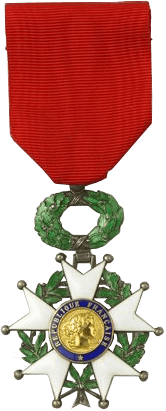Commandry
Commandry (British English), or commandery (American English), was the smallest division of the European landed estate or manor under the control of a commander of a military order. The word is also applied to the emoluments granted to a commander in an order of knights. They were the equivalent for those orders to a monastic grange.
Etymology
The word came from French commanderie, from medieval Latin commendaria, meaning "a trust or charge". It is also called "commendæ" in Latin.[1]
The property of the order was divided into "priorates" (or priories), subdivided into "bailiwicks," which in turn were divided into "commanderies"; these were placed in charge of a "commendator" or commander. The word is also applied to the emoluments granted to a commander of a military order of knights.[1]
Originally, commandries only existed for the Order of Knights of St. John of Jerusalem, but later also for the Order of Teutonic Knights and other orders. Commandries of the Teutonic Knights were known as Komturei. Equivalents for Knights Templar were preceptor and preceptory. In 1540, the possessions in England of the Knights Hospitaller were seized as crown property.
Usage
Modern
- A territory of the Venerable Order of Saint John
- A division of the Knights Templar, found within the York Rite of Freemasonry.
- A chapter of the Military Order of Foreign Wars.
Medieval
In the Near East and throughout Europe:
- A territory of the Order of St John of Jerusalem, the Knights Hospitallers
- A territory of the Order of Teutonic Knights and other orders
- The Commandery, an historic building in the city of Worcester, England probably built by Knights Hospitallers
See also
References
- 1 2 Chisholm 1911, p. 765.
Notes
![]() This article incorporates text from a publication now in the public domain: Chisholm, Hugh, ed. (1911). "Commandery". Encyclopædia Britannica. 6 (11th ed.). Cambridge University Press. p. 765.
This article incorporates text from a publication now in the public domain: Chisholm, Hugh, ed. (1911). "Commandery". Encyclopædia Britannica. 6 (11th ed.). Cambridge University Press. p. 765.
